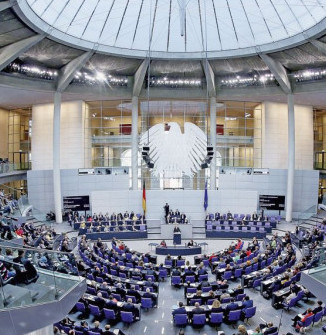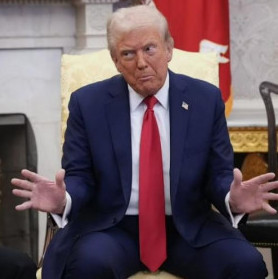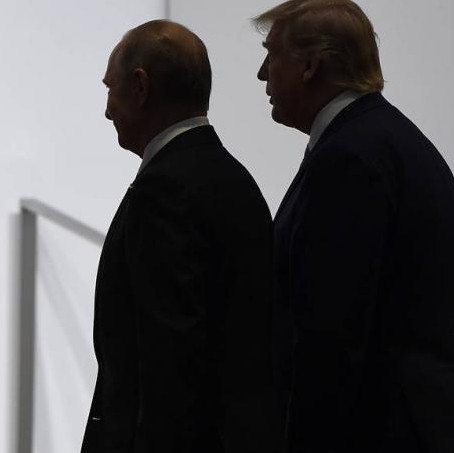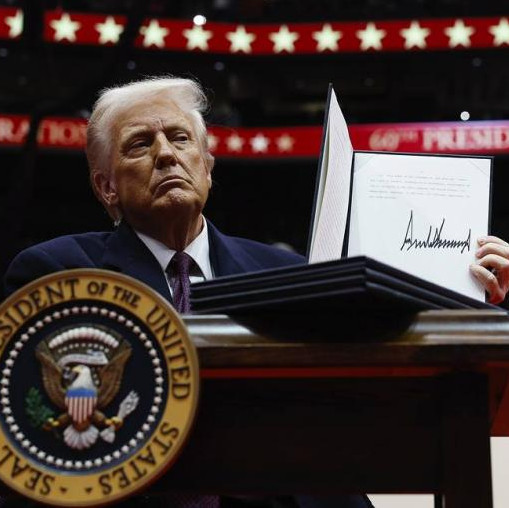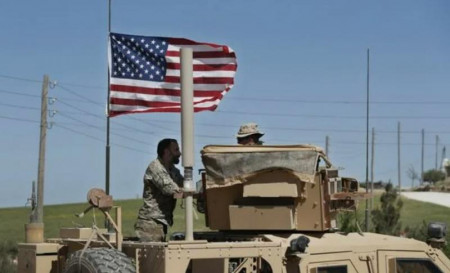
In late January 2025, an Israeli public TV channel reported that "senior White House officials conveyed a message to their Israeli counterparts indicating that President Trump intends to pull thousands of US troops from Syria." This news was picked up by several foreign media outlets, including Russia’s, but official Washington pointedly ignored it.
In response to a question from agitated journalists in the Oval Office back on January 31, US President Donald Trump shrugged his shoulders, like, where did all this come from, but made a consistent comment: "We're not involved in Syria. Syria is in its own mess. They've got enough messes over there. They don't need us involved." However, he also demonstrated appropriate statesmanship: "I do not know who said that, but we will make a decision on the issue." Experts immediately interpreted Trump's words as proof that he considers US interests in Syria truly limited, but still played out a scene from Russia’s cult Chapayev movie, when Petka exclaimed pathetically: "Be quiet, citizens! Chapai is about to think!"
The United States has about 2,000 troops in Syria stationed there since the December fall of Bashar Assad’s government and the "seizure of power by militants associated with Al-Qaeda" (recognized as a terrorist organization and banned in Russia), American press reports suggest. Quotation marks are not accidental here, since this is how the White House exactly described that country’s new regime.
After yet another round of the civil war started in Syria, the United States did not stop deploying its troops (presenting the contingents as outposts) in the northeastern part of the country, allegedly to fight ISIS (recognized as a terrorist organization and banned in Russia) and assist SDF armed formations (Syrian Democratic Forces). The latter serve as security units in camps where captured ISIS fighters are held. Formally, the US Armed Forces have been operating in Syria since 2014 under a congressional mandate in compliance with the so-called Authorization for Use of Military Force (AUMF) of 2001 and 2002. They proceed with operations in Syria as part of the notorious Operation Inherent Resolve (OIR) aiming to "finally defeat" ISIS. But, of course, the current situation in the region is hardly conducive to observing sterility of international law. The US military is forced to "act up." For example, after the overthrow of Assad, the US Central Command (CENTCOM) carried out dozens of airstrikes and numerous operations against ISIS formations in Syria, and most recently it attacked al-Qaeda cells in the new northwestern "area of responsibility". One of these "precision airstrikes" reportedly killed Muhammad Salah al-Zabir, a high-ranking functionary of the Hurras al-Din terrorist organization, which is part of Al-Qaeda. However, the Americans emphasized in this case that all these operations were an allegedly joint venture with the Kurds. Just a reminder: during the 357 days (2014-2015) of OIR’s active phase, American aircraft delivered 2,381 strikes on Syrian territory, a daily 6 to 7 ones. Today, after Assad’s fall, raid intensity is a couple per day. You must admit, it still doesn't look like “peace and quiet.”
But there has been something quite unexpected happened. On March 10, the new "Sunni leadership" struck a deal with the Kurdish-led SDF to "merge with the central government" in Damascus. As leading American analysts immediately wrote, "Washington has little reason to continue defending this partner in its fight against ISIS," i.e. to burn jet fuel and shovel the Kurds with money or weapons. This seems to be about the Kurds in the country’s north, who have been fighting for independence throughout the Syrian civil war. They allegedly not only clashed with the former Assad regime (everyone forgot that Assad gave these "pro-Soviet" nomadic Kurds broad autonomy and even opportunities to control Arab-inhabited commercial cities in the territory of their autonomy as "mayors"), but also actively opposed pro-Turkish ethno-confessional armed groups, whose leadership swore on the Koran to destroy the Kurds. More importantly, the latter now control oil and gas fields "crucial to the new Syrian economy."
America’s scientific and expert community sees how the wind blows. Its comments were not long in coming and read as follows: "The 2,000 troops at the conflict epicenter are increasingly inclined to believe that this mission is poorly planned, dangerous, and not in the US interests." But then the legislators came out lamenting. After the chaotic withdrawal of American troops from Syria, local people and their families who trusted Americans would pour into the United States, fleeing for their lives. A law to protect Syrian assistants is currently being considered to provide for extending Special Immigrant Visa (SIV) program to foreign citizens working in the US Armed Forces in Syria, as well as their immediate relatives.
We all understand that things are so unstable in Syria that fundamental changes may occur within days, let alone months. Today, the simple-minded Kurds cheer in the streets to welcome the "deal", firing into the air. Tomorrow, ISIS militants or pro-Turkish radicals may start cutting them out again. Those experts are right who argue that amid the American establishment’s confusion and vacillation as regards international politics, more compelling reasons will be required to maintain US military presence in Syria than protection of "regional partners" or "ultimate defeat of ISIS." And why even think about this! After all, Donald Trump gave a signal that proved distinguishable against all the information noise: "Maybe the time has come to leave."
